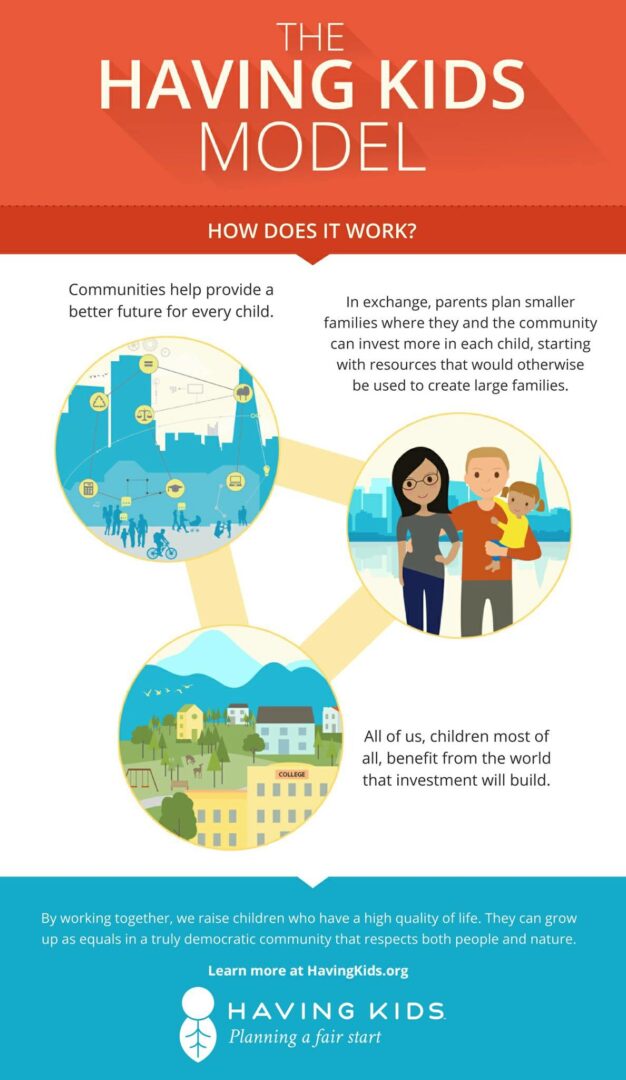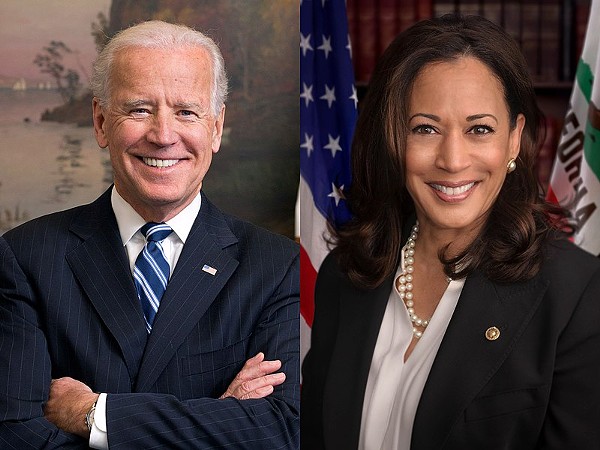Having Kids is an international human rights organization dedicated to improving family planning systems worldwide with a simple idea: Every child has a fundamental human right to a Fair Start in life, ecologically and socially, which overrides all competing interests. Our modeling is the subject of several peer-review works, and it includes clear policy pathways for implementation.
Our biggest crises — health, economic, and environmental — are complex, but they all point back to a single issue: failures in family planning. This is reflected by the nearly 50% of pregnancies that are unplanned in the United States. If we hope to effectively make progress on the crises we face, it is essential that we stop looking at them as separate issues. They are intersectional; we cannot address them individually. And they demand an informed and coordinated approach from this administration.
They begin with family planning.
Family planning is an economic issue: The U.N. has called the United States the most unequal society in the developed world. Right now, nearly 40% of children in the U.S. live in or near poverty. Unequal opportunities translate into unequal lifelong outcomes by the time children reach age 5. Decades of research indicate that better family planning is the most effective way to break the cycle of poverty. It enables future parents to pursue higher education and achieve career stability, allowing them greater lifetime earning power for families that sets children up for greater achievement and welfare outcomes.
Family planning is a health issue: We have seen both COVID-19 and climate-affected environments disproportionately affect the health of low-income and BIPOC communities. This occurs because economic disparities among these groups translate into health inequalities.
Family planning is a climate issue: Unsustainable population growth is undoing the work to curb carbon and other emissions. It is time to look beyond fossil fuels to the primary and fundamental driver of the climate crisis. We must account for a sustainable population growth if we are serious about reversing course on climate and promising a healthy, habitable future for the next generation.
The policies of the United States and other nations will severely harm future generations if we do not make changes now. Improving the way we plan families is the most important investment we can make for the health and well-being for all children.
Here are three things the Biden administration must do in 2021 to address the social, health, and ecological crises we face today:
- Respond to the Climate Crisis by Targeting Its Fundamental Driver
The most effective long-term way to mitigate the climate crisis is by promoting smaller families for all. This move can have 20 times the impact of other policy choices. And there are now clear policy levers that would promote smaller families, and well as parental readiness before having children as another means of improving child welfare. Focusing on building resilient future generations would go beyond the Green New Deal, which lacked this key focus. It would move us toward a true social contract to come together as free and equal people, but one correctly designed to be 360-degree intergenerational.
Multiple studies have confirmed the incomparable impact of new family planning policies. Yet governments and industries that are accustomed to unsustainable population growth have instead embarked on policy initiatives designed to push women to have children.
Your administration has the opportunity to lead on this issue, in part by promoting tax reforms that convert traditional child tax credits into Fair Start baby bonds designed to promote smaller and equitable families. In short? Convert incentives for all people to have kids into a steeply progressive tax system that incentivizes everyone to wait until they are truly ready to parent and to work together to have smaller families with a level entry field for every child.
It should be the administration’s policy that the United States will lead in helping the world reach an optimal population range as soon as possible. This population will be built around the human right to nature rather than continued nationalistic and unsustainable growth policies that consider babies to be economic inputs, treat nature as a resource, and exacerbate the climate crisis, inequity, and child poverty.

- Respond to COVID-19 by Making Future Generations More Resilient
In a recent dialogue between Having Kids and the CDC, the agency noted the connection between reduced birth rates and the beneficial impact on our ability to respond to COVID-19. In short? Poor family planning hurts public health, creates overcrowding, and sets the stage for the next public health crisis.
Poor family planning, and the overpopulation it creates, exacerbates the impact and threat of pandemics and will now stymie the distribution and uptake of vaccines. As the WHO has recognized, overcrowding exacerbates pandemics and is perhaps the most fundamental threat to public health. Overpopulation is a key factor in the spread various diseases including coronavirus, yet this driver is often ignored in policymaking.
We propose reforming federal family planning policies through forthcoming legislation designed to respond to COVID-19. And we urge cementing these changes by reforming Title X to promote a child’s equitable start in life as the guide-star value. Stimulus packages and regulatory reform provide a unique opportunity to stabilize today’s families while protecting future generations.
Priorities, detailed in our recent letter to U.S. Sen. Cory Booker, should include:
- Expressly protecting family planning services in stimulus legislation.
- Expanding access to long-acting reversible contraceptives, including initiatives at the National Institutes of Health to promote the approval, marketing, and subsidization of the male birth control pill.
- Considering new federal measures to prevent child abuse by changing the way we plan families.
- Become a World Leader in Human Rights-Based Family Planning
Family planning is a universal human right, and the United States can become a leader in the ongoing development of this right around the world. The best way would be to explicitly support a growing coalition’s call for the United Nations Secretary General to issue an informal statement embracing family planning reform as the first and most fundamental means of addressing the world’s key social and ecological crises, and moving toward the U.N.’s Sustainable Development Goals.
- By 2100, world population could vary by billions of people depending on whether the average woman in the world has one child more or one child fewer.
- Simply stated, the current family planning model used by the United Nations was developed before awareness of climate change, the disproportionate impact of early childhood development on human well-being, and how birth conditions and early development exacerbate inequality and other factors. This old model makes our future less secure, healthy, and equitable.
The right to have children comes with responsibilities for parents and for communities that protect us all. The United Nations is using a decades-old pro-growth family planning model that ignores those responsibilities and hurts kids. That model is fundamentally driving ecological crises and the climate crisis, child poverty, and growing inequity across the globe. That model exacerbates the risk and impact of pandemics and prevents our reaching the U.N.’s Sustainable Development Goals. That non-inclusive model exploits children more than it invests in them, thereby driving its political illegitimacy.
The United States should take the lead in urging the United Nations to abandon its current family planning modeling in favor of a truly future child-centric and human rights-based Fair Start approach. Our recent letter to the heads of the UNFPA and UNICEF detail the change.
We are hopeful for important progress to be made as we usher in an administration that believes in science and the advancement of human welfare. With these three steps, we believe the Biden administration can become a leader in promoting the evolution of our family planning systems to guarantee every child a fair start in life.
Thank you for considering,
The Team at Having Kids

